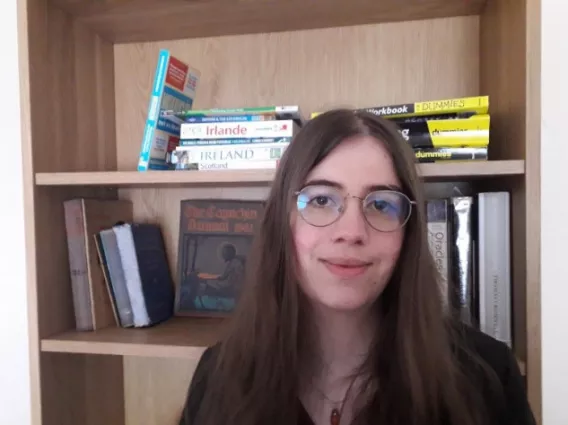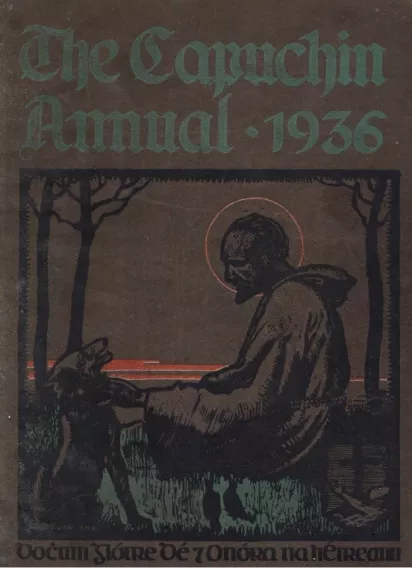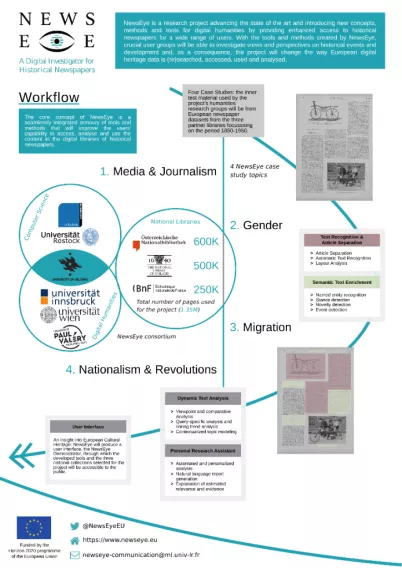
My research project analysing representations of Irish nationalist figures in the Capuchin Annual uses digital humanities methods, as I designed an interdisciplinary methodology to analyse this digitised periodical. Since I have a humanities background, I was interested in working with researchers from other backgrounds to get a better understanding of the methods from their point of view. In March 2021 I made an application to the Helsinki Digital Humanities Hackathon 2021 #DHH21. It is an interdisciplinary event, where students and researchers from various backgrounds (computer science, data science, humanities) collaborate to tackle a specific research project in a set time, using computational tools to answer digital humanities questions. This event is selective, but free to attend for the selected participants. It is suitable for students from MA level and ECTS can be accorded for participating. I heard of the Hackathon through social medias as it was advertised by Digital Humanities groups, and I had applied for last year’s edition, which was unfortunately cancelled due to the pandemic.

They presented seven themes this year, and all seemed very interesting, but I had a specific interest in the Space Wars theme. As I work with cultural sources, specifically periodicals in my current research, and speak fluent French and some German, I thought this theme fitted my research interests and my skills perfectly. I was delighted to discover that my application was successful and that I was selected to attend this event happening online this year. The application process requested to order the themes by preference, and I was very happy to be selected in the Space Wars group, as this was my first choice. This theme aims to analyse the reporting of locations during the First World War in newspapers published in France, Austria and Finland. The dataset for this theme is provided by the NewsEye project, a European Union Horizon 2020 funded international project.
During the application period, in March, I was required to write about my research background and my potential input into the themes, so the organisers would be able to select the students and researchers having the skills they needed for the projects. I was informed that they had selected me in early April. I was happy to see my skills recognised, and to be given a chance to improve them by applying them to a new challenging project. I am looking forward to working with the eight other participants and the four theme leaders, all from various countries and various backgrounds, to analyse this dataset, develop new tools, and overall to participate in the development of digital humanities methods applied to historical texts.
The online event consists of three preparatory sessions, in April and May, to set up the groups and get familiar with the dataset. At the end of May, we will then have the ten intensive days during which we should complete the project on the parameters we set up during the preparatory sessions, and on the last day we will present our results in a report and a poster, which will be made available online. Previous participants have underlined the friendly atmosphere of the event, and having attended the first preparatory session I agree with them. This event promotes collaborative work, and reusability of datasets and tools, which are all values I fully embrace, as I believe that it is by combining our different skill sets and by creating FAIR research (Findable, Accessible, Interoperable and Reusable) that we will make the greatest advances to knowledge.
I am looking forward to learning more and to participating in this exciting event. Digital humanities is an exciting interdisciplinary field and I would encourage others to keep an eye on these important opportunities and to apply to these events.
Helsinki Digital Humanities Hackathon: https://www2.helsinki.fi/en/helsinki-centre-for-digital-humanities/helsinki-digital-humanities-hackathon-2021-dhh21
Capuchin Annual: https://www.capuchinfranciscans.ie/capuchin-annual-1930-1977/
NewsEye Project: https://www.newseye.eu
Harrower, Natalie, Maryl, Maciej, Biro, Timea, Immenhauser, Beat, & ALLEA Working Group E-Humanities, Sustainable and FAIR Data Sharing in the Humanities: Recommendations of the ALLEA Working Group E-Humanities (2020), Digital Repository of Ireland, https://doi.org/10.7486/DRI.tq582c863


